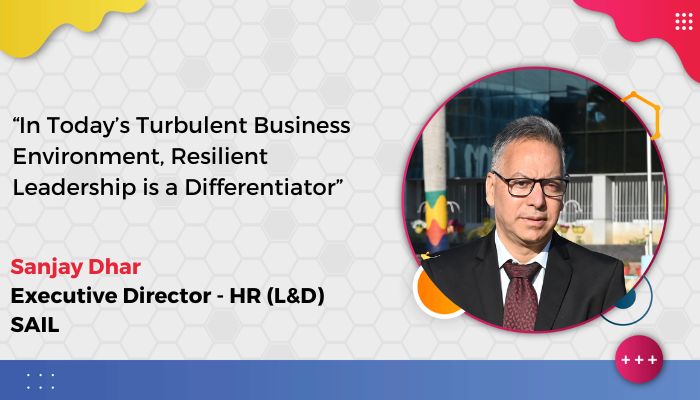Rishi Agrawal, Co-founder and CEO, TeamLease RegTech, charts down top 5 reasons why compliance remains a fundamental obstacle in the ease of doing business in India.
India has made considerable progress in ease of doing business over the past few years. While these improvements are praiseworthy, we still have a long way to go, especially when it comes to rationalising the regulatory burden of employers. The ground reality on compliance for employers has remained largely unchanged. The complexity, ambiguity and high costs continue to impede entrepreneurship, innovation and job creation
India’s regulatory ecosystem for employers has a maze of 1,536 laws and 69,233 compliances. These include hundreds of licences, registrations and permissions that need to be obtained from central and state governments, regulators and local governments. As many as 26,134 of these compliances prescribe criminal penalties for violations.
The complexity of the compliance framework is forcing employers to channel their scarce resources towards staying on the right side of the law. This situation worsens exponentially as the size and the geographical footprint of the business increases. Among the several challenges facing Indian employers, described below are the top 5 reasons why compliance is a fundamental obstacle for them.
1. Lack of Expertise in Compliance Management
The intricate web of compliances means that staying compliant requires a convergence of expertise, processes and technology. A typical organisation does not have the requisite in-house expertise, lacks comprehensive processes and operates in a manually intensive environment. 90% of the organisations do not have an exhaustive list of applicable compliances. The lack of expertise results in inadequate awareness about the operational, financial and reputational costs of poor compliance.
2. Lack of Resources for Seamless Compliance
While large organisations have a dedicated team of 2-3 people dealing with compliance, small and mid-sized organisations do not have the resources for an in-house compliance team. Hence, the responsibility for ensuring compliance is scattered across various departments of the organisation. This often results in a lack of coordination, duplication of efforts, and enhanced risk of non-compliance. In the majority of cases, it is the company secretaries and lawyers who assume the additional role of organisational compliance.
3. Lack of Awareness at the Management Level
In over 80% of cases, the Key Managerial Personnel (KMP) such as Directors, Board Members and CXOs have a poor understanding of organisational compliances. As a result, they are unable to set the right tone from the top down and provide the required supervision to their ground-level staff. Resultantly, compliance discussions become an uncomfortable affair and typically take a back seat in boardrooms.
4. Lack of Access to Timely Updates
India’s regulatory environment is highly dynamic. Changes in compliance requirements occur constantly and add to business uncertainty. In 2021 alone, there have been 3,577 regulatory changes. Between 2019 and 2021, there were 11,043 changes in compliance requirements. This translates to an average of 10 regulatory changes every single day. These changes are published as updates on over 2,000 government websites, as and when they occur. These updates often pertain to important changes in procedures, dates, penalties, calculations and applicable duties, among others. There is no simple way for an employer to obtain relevant real-time notifications of regulatory changes.
5. Lack of Digitization in Compliance Tracking and Management
Over 95% of Indian organisations rely on an ad-hoc, paper-based and people-dependent mechanism for compliance tracking. They manage compliances on spreadsheets and use emails and phone calls for following up. There is an overall lack of transparency, accountability, timeliness and ownership in compliance. This leads to instances of missed compliances and the consequent fallout of statutory notices and penalties. As a result, KMPs are often seen operating in fire-fighting mode. The benefits of digitisation in ensuring timely and accurate compliance have yet to reach most employers.
Employers must recognise that compliance is a marathon, not a sprint. Targeted efforts should be taken to build a culture of compliance at all levels of the organisation, which can help reduce the burden of hiring external consultants. Embracing the power of digitisation can also go a long way in ensuring a predictable, process-oriented and systematic compliance management system. Lastly, employers must ensure strong internal controls to stay on top of the changing regulatory environment and to intervene in cases of unforeseen and accidental non-compliance.
About the Author
Rishi Agrawal is Co-founder and CEO at TeamLease RegTech. He is a passionate technology entrepreneur who believes in the potential of technology to transform human lives. Over the past few years, Rishi has been working on developing a regulatory technology platform to automate and simplify India’s complex compliance environment. He has worked with over 1,000 organisations (Enterprises & MSMEs) across 40 Industries in India helping them through their compliance management journey. He deeply understands the complexity of managing compliances across central, state and local governments. He has been partnering with corporate India, industry bodies and think-tanks to enable Compliance 3.0. He created the four vector framework of rationalisation, simplification, digitisation and decriminalisation. Rishi served as an advisor to the WGOM (Working Group of Ministers), works closely with several ministries, DPIIT, Invest India and World Bank on various ease of doing business initiatives. He is also a member of CII Taskforce for Ease of Doing Business. Rishi frequently writes in ORF (Observer Research Foundation), Financial Express, India Today, Mint among others.






